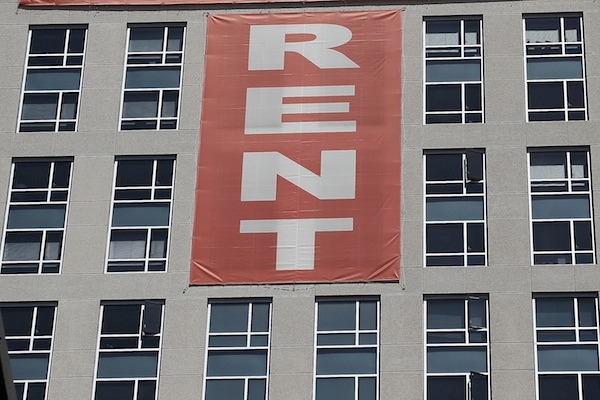Let’s face it, us Brits have a dirty habit. We’re obsessed with property. We own much more of it than our European cousins, and many of us have come to see owning a nice home as not just a sign of a successful life, but intrinsically linked to our self-worth.
Thanks to TV shows like the BBC’s long running Homes Under The Hammer, we’ve also become convinced that owning property is a license to print money. It’s this belief that has filtered through every part of the property industry, and led to some pretty predatory behaviour. In February a Which? study found that home-sellers were losing an average of £20,000 because ‘greedy’ estate agents were overvaluing their properties.
This greed has helped to fuel rising house prices, and turned homeownership into a long lost dream for many in my generation. And as more of us turn to renting, the yearning to squeeze renters has never been more compelling.
Having recently moved out of a rental property I’d lived in for a year and a half, and after hearing horror stories about deposits being ‘clipped’, I worked hard to get the property back to its move-in state. Unfortunately for me and my deposit, the property management firm wasn’t as impressed as I’d hoped.
There was £42 for the ‘installation’ of light bulbs and £90 for a replacement entry fob. These were just two of the charges listed, and seemed rather high. I queried the cost for the fob specifically and was told: ‘There is an element of mark up to the fob, as this includes the administration for ordering and collecting as well as the credit card fee.’ At this point it was clear that they had free rein to rip me off. Querying the cost of light bulb installation seemed pointless.
When I dragged my feet over accepting their proposal, I was informed that ‘if you do not enter your repayment number via the DPS, then we will enter into a Single Claim with the DPS. This will incur an admin charge of £50+VAT (£60.00) in order to begin the process.’
I’m fortunate enough not to be one of the 16 million people who have savings of under £100. This staggering figure means that in parts of the country like the North East of England, more than 50 per cent of adults have less than £100 in savings. It’s not hard to see that if I were financially vulnerable, I’d have little choice but to fold like a house of cards in a bid to salvage any of my deposit. Landlords and property management firms know this too.
Deposits paid upon agreeing a tenancy now have to be held in a tenancy deposit protection scheme. One of the largest schemes is run by the Deposit Protection Service (DPS). When disputes arise (when tenants disagree with the amount a property manager wants to clip off a deposit) these schemes provide free access to an Alternate Dispute Resolution (ADR) service. Some 1.69 per cent of all deposits held by the DPS went through the ADR service in 2016.
Data from the DPS shows that in 2016, 54.91 per cent of all cases that went through ADR were split between landlord and tenant. Had my case gone through this process, I would have been part of this figure. My property management firm had legitimate grounds to clip my deposit; I just believe they were too greedy when calculating how much they wanted back.
But in almost a third of cases, the ADR found that the landlord had no grounds to request the clawback proposed – these landlords were basically trying their luck. So 29.35 per cent of all cases that went through the ADR were awarded 100 per cent to the tenant. Just 15.74 per cent of all cases were awarded 100 per cent to the landlord.
It’s ludicrous that we’ve allowed this system to take hold. While the financial services industry is developing innovative ways to judge affordability and credit worthiness, and securitising loans against assets is hardly new, tenants are forced to cough up a new deposit while the old one remains locked away. The ability to secure a percentage of your new deposit on the cash tied-up in your old deposit should be a no-brainer. It would also allow more tenants to challenge greedy landlords.
But we’re trapped in a cycle. If you can’t afford a house, you’ve got no choice but to rent. And if you live on a financial knife-edge, as too many people do, you have no choice but to accept whatever clipping your landlord (or the agent acting on their behalf) deems acceptable. Once again, the most vulnerable in our society have their backs against the wall.
And while most of us have felt helpless at some point in our lives, being trapped in a flawed system can be devastating. It’s about time we stopped allowing greed and a lack of innovation to crush the most financially vulnerable.
Mike Fotis is the founder of Smart Money People and a former financial services consultant






Comments